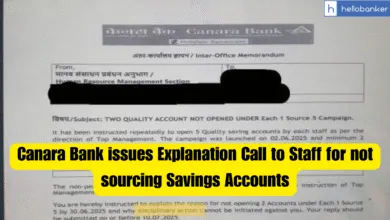High Court says Cheque Bounce complaint should not be dismissed for violating IT Act

| ➡️ Get instant news updates on Whatsapp. Click here to join our Whatsapp Group. |
The Himachal Pradesh High Court recently addressed the dismissal of a cheque bounce complaint and emphasized the importance of relevant considerations in such cases.
Irrelevance of Income Tax Section 269(SS):
The court highlighted that a cheque bounce complaint should not be dismissed solely for violating Section 269(SS) of the Income Tax Act. This section pertains to cash repayment restrictions for loans or deposits exceeding INR 20,000.
Legal Background – Surinder Singh Case:
The court referred to the Surinder Singh vs State of HP case, emphasizing that violating Section 269(SS) results in a penalty but doesn’t invalidate the transaction.
Court’s Observation on Trial Court’s Focus:
Justice Rakesh Kainthla observed that the Trial Court in this case was distracted by irrelevant considerations, such as Section 269(SS) and the complainant’s status as a moneylender, while deciding the cheque bounce complaint under Section 138 of the Negotiable Instruments Act.
Case Background:
- Appellant’s Counsel: CM Thakur
- Respondent’s Counsel: Vijay Kumar Verma
- Appeal filed against the acquittal of the respondent in a Section 138 case.
Complainant’s Allegations and Legal Response:
- Complainant (cloth shop owner) lent INR 2 Lakhs to the accused.
- Cheque issued bounced due to insufficient funds.
- Legal notice sent, but accused failed to make payment.
- Accused claimed fraud, stating the complainant took a blank cheque for a cloth credit.
- Trial Court considered Sections 118 and 139 of the NI Act, highlighting the complainant’s lack of documentation and the accused’s allegations.
Trial Court’s Decision:
- Dismissal of complaint due to legal irregularities.
- Complaint perceived as a moneylender without a license.
- Highlighted INR 2 Lakhs provided in cash, violating Section 269(SS) of the Income Tax Act.
Appeal and High Court’s Ruling:
- Appeal argued Trial Court’s error in dismissal and accused’s failure to rebut presumption under Sections 118(a) and 139 of the NI Act.
- High Court found the cheque was issued to discharge a legal liability, and the Trial Court erred in its judgment.
- Citing Rajesh Jain v. Ajay Singh, the Court emphasized the importance of considering Section 139’s presumption.
Conclusion:
The High Court allowed the appeal, setting aside the Trial Court’s judgment and reinforcing the significance of valid legal considerations in cheque bounce complaints.
